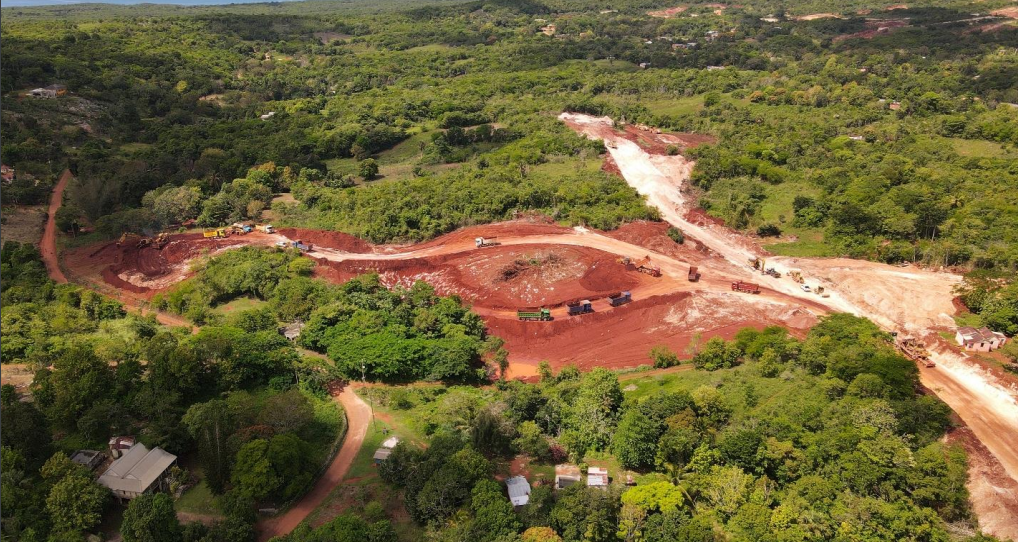Compensation disparities in Jamaica's bauxite-alumina industry: A call for reform
The report, Compensation Disparities in Jamaica's Bauxite-Alumina Industry, by the Jamaica Environment Trust (JET) provides a comprehensive analysis, shedding light on the compensation framework within Jamaica's bauxite-alumina industry. The study reveals a range of challenges, including legislative gaps, disparities in compensation, and a pressing need for reform to address the power imbalances between companies and affected communities.

Jamaica's bauxite mining and processing industry is primarily regulated by the Mining Act of 1947. While this legislation governs compensation for surface rights disturbance and property damage, it falls short in addressing health impacts and social disruptions arising from mining activities. This report synthesises the key findings from JET's 2023 study, offering insights into compensation disparities and highlighting the critical areas of concern.
Methodology: JET's 2023 study involved surveying 210 individuals from 17 communities with historical or current bauxite mining activities or proximity to bauxite/alumina plants. The study aimed to assess the awareness, knowledge, and resources available to individuals seeking compensation for the multifaceted impacts of bauxite mining.
Findings: The study yielded significant findings, which include:
Limited awareness: An alarming 90 per cent of respondents were unaware of their rights to compensation under the Mining Act and other pertinent laws.
Resource constraints: The study revealed that 93 per cent of participants lacked the financial means to retain legal representation for compensation negotiations, while 91 per cent did not possess the resources to pursue compensation through the judicial system.
Health and environmental impacts: The research demonstrated that the majority of surveyed communities faced severe environmental issues, with 98 per cent of respondents experiencing dust pollution, 64 per cent reporting water pollution, and 64 per cent seeking medical attention due to pollution-related health concerns.
Inequities in compensation: Compensation disparities were evident, varying significantly based on location and company. For instance, Western St Ann residents received average compensation of J$8,500 every three months for dust pollution, while Eastern St Ann households received as little as J$500 per room per month.
Legislative gaps: The study underscored the inadequacies within the legislative framework, a lack of standard national or industry guidelines, and a disproportionate reliance on individual knowledge and legal representation for compensation claims.
Non-monetary benefits: While some communities received non-monetary benefits like water tanks, scholarships, and donations, these were deemed insufficient to compensate for the adverse effects on livelihoods, quality of life, and health.
Recommendations: Drawing from the findings, the report offers the following recommendations:
Legislative revision: Urgent amendments to the Mining Act to align with contemporary best practices, including clear definitions of both monetary and non-monetary compensation.
Environmental bonds: Amendments to the Natural Resources Conservation Authority (NRCA) Act to incorporate provisions for environmental bonds as a source of compensation for damages.
Dust nuisance provision: Inclusion of a new provision within the Mining Act to address dust nuisance and provide legal recourse for affected individuals.
Compensation tribunal/commission: Establishment of a compensation tribunal or commission to impartially address compensation claims.
Community education: Continuous educational initiatives by the Government of Jamaica to empower communities with knowledge of their rights to compensation.
The 2023 study by the Jamaica Environment Trust serves as a wake-up call, urging immediate reforms in Jamaica's bauxite mining compensation framework. The pervasive compensation disparities and legislative shortcomings perpetuate a glaring power imbalance between companies and impacted communities. It is incumbent upon the Jamaican government to take proactive measures to redress these issues and instate a fair and equitable compensation system for all stakeholders.
The full report is accessible on the Jamaica Environment Trust's website.
This news is also available on our App 'AlCircle News' Android | iOS
























